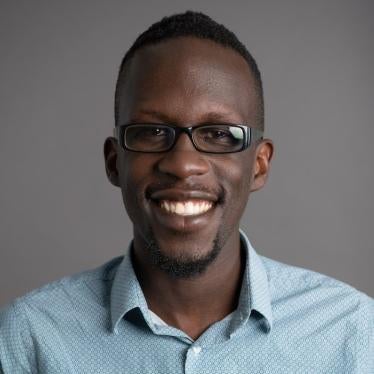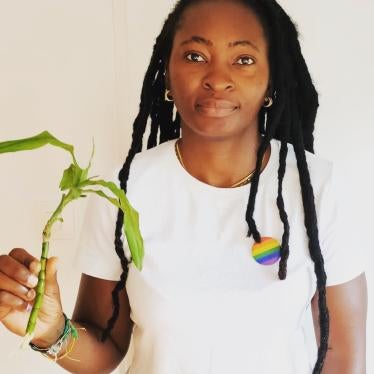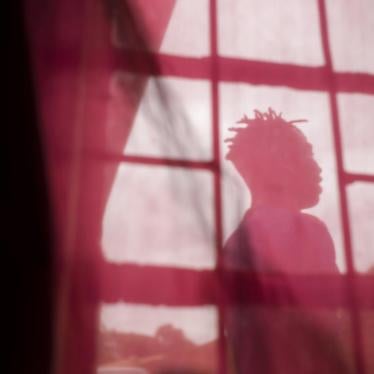Ugandan human rights activists, journalists, religious leaders, academics, and lawyers are currently challenging the Anti-Homosexuality Act, which came into force in May, in court. The case, which enters its final pretrial stage today, will soon proceed to trial.
The Anti-Homosexuality Act is one of the world’s harshest anti-LGBT laws and includes the death penalty for “serial offenders” or for anyone having same-sex relations with a person with a disability, a child, or of advanced aged, among others, under the offence of “aggravated homosexuality.” The law also criminalizes the vaguely worded “promotion of homosexuality.” That means anyone advocating for the rights of LGBT people, including representatives of human rights organizations or those providing financial support to organizations that do so, now faces up to 20 years’ imprisonment.
The petitioners challenging the law correctly argue that it violates fundamental rights guaranteed in Uganda’s constitution, including freedom from discrimination and rights to privacy as well as freedom of thought, conscience, and belief. Likewise, they correctly argue the Anti-Homosexuality Act contravenes Uganda’s commitments under international human rights law, including those in the African Charter on Human and Peoples’ Rights, the Convention Against Torture, the Protocol to the African Charter on Human and Peoples’ Rights on the Rights of Women in Africa, and the Convention on the Rights of the Child.
Since the law was introduced as a bill in parliament in March, local groups have reported a rise in anti-LGBT discrimination. The Strategic Response Team, a coalition of Ugandan LGBT rights organizations, reported in September that LGBT people have experienced “intensified violence and discrimination,” including beatings, sexual and psychological violence, evictions, blackmail, loss of employment, and denial of access to healthcare on the basis of their perceived or real sexual orientation.
In August 2014, Uganda’s Constitutional Court declared the 2013 Anti-Homosexuality Act void on procedural grounds. But Ugandan courts have yet to deem a law “discriminatory” on the basis of sexual orientation or gender identity or on its merits. Other African countries—South Africa, Angola, Botswana, and Mauritius—have, however, scrapped laws criminalizing consensual same-sex conduct on human rights grounds.
Considering Uganda’s domestic and international human rights obligations, and bearing in mind these important regional rulings, upholding the fundamental rights of all Ugandans should be front and center for the court in hearing this challenge to the Anti-Homosexuality Act.








